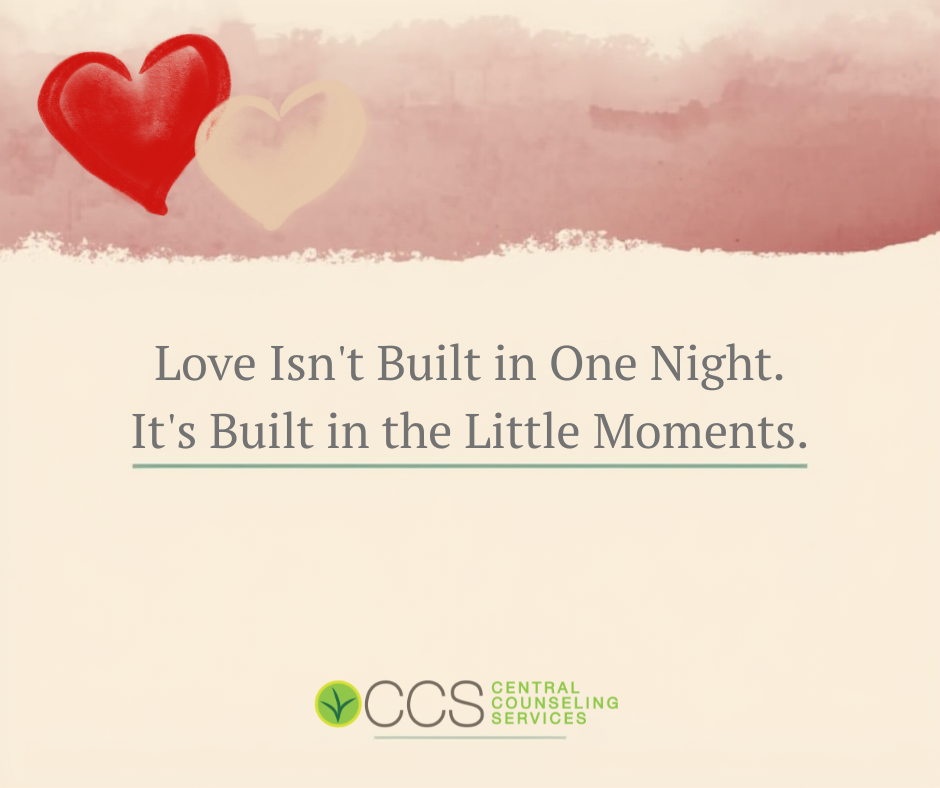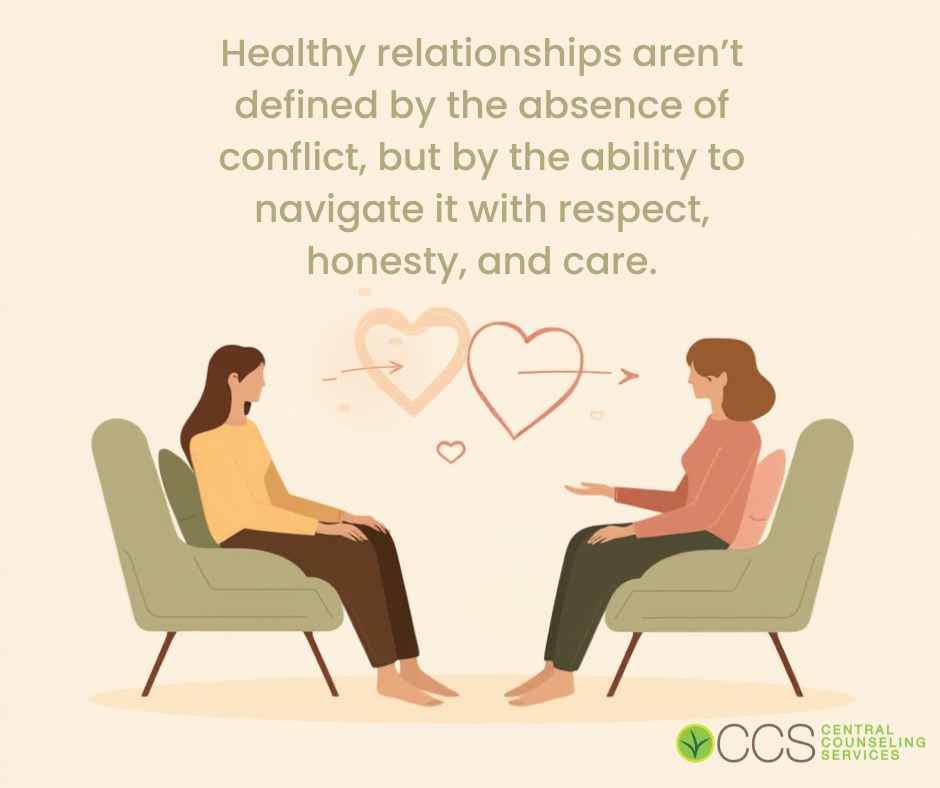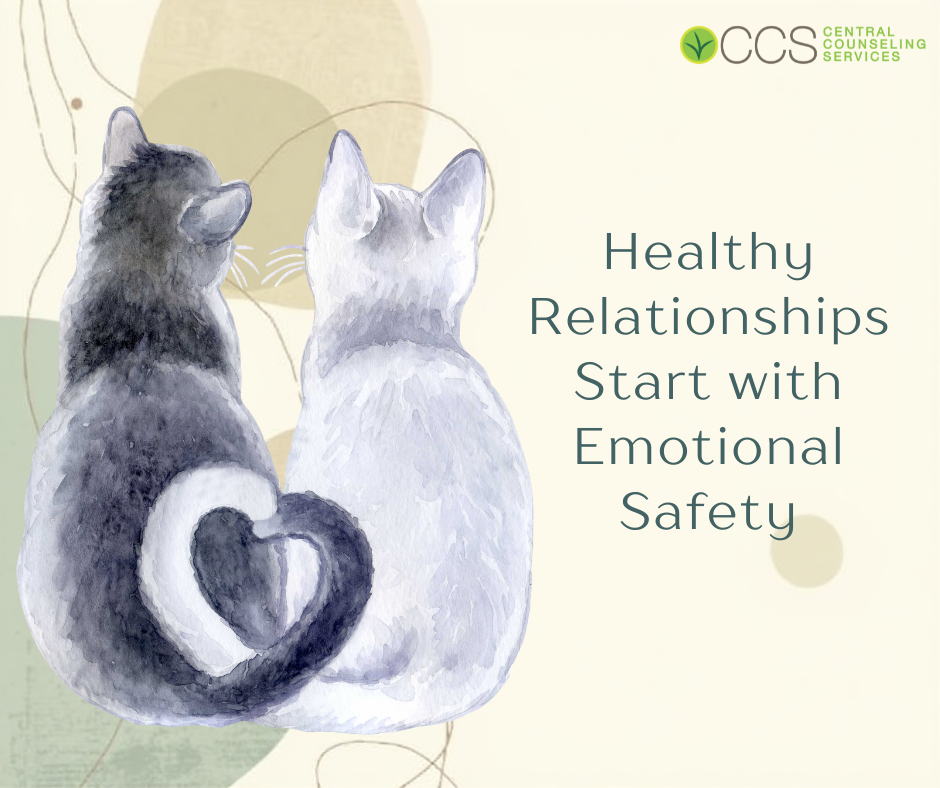Blog

The Valentine’s Day Myth: Love Isn’t Built in One Night — It’s Built in the Little Moments
Valentine’s Day can turn love into a performance. This blog explores how real connection is built in everyday moments — not one perfect night.

Healthy Communication vs. Conflict Avoidance: Why Silence Isn’t Always Peace
Avoiding conflict may feel peaceful, but it can damage connection over time. Learn how healthy communication strengthens relationships and emotional safety.

Healthy Relationships Start With Emotional Safety
Emotional safety is the foundation of healthy relationships. Learn why it matters, how it affects mental health, and how to build safer, more supportive connections.

Why Shared Ground — Not Opposites — Keeps Love Alive
Opposites may attract, but shared rhythm keeps love alive. Discover how connection, curiosity, and compassion build lasting relationships in this Central Counseling Services feature on relationship health.

How To Stop Fighting Your Spouse
I’ve heard this often from either spouse, “I can’t read their mind.” I agree with this statement, “your spouse does not know how to meet your needs unless you know what they are and you communicate it.”

Change Your Attachment Style, Change Your Life!
This is the one we all are searching for and hope for. This is an understanding of healthy relationships.

Celebrating Father’s Day
With Father’s Day approaching many people are reminded of the presence of their father in their lives. Through history the importance of a father’s role in the family had been seen as primarily a provider and disciplinarian rather than a caretaker. In more recent times, it has been seen that father’s who are emotionally present and active in the child’s life can make a profound positive impact.

Borderline Personality Disorder and Relationships
Let's talk about borderline personality disorder (BPD) and relationships. The first thing we want to do is recognize the traits of borderline personality disorder. People with BPD tend to have an intense fear of being left alone or abandoned. Regardless of whether such abandonment is real or imagined, the individual may take extreme measures to avoid possible separation or rejection.

Save a relationship by using these ‘Fair Fighting Rules’.
As you are probably well aware, the last few years have been difficult due to so many occurrences happening in the world. Political issues, COVID-19, so many different losses in everyone’s life, not to mention all the different viewpoints related to all these topics

Emotional Intimacy
Have you ever spent the entire day with someone, but still felt like you missed them or you didn’t really connect in your time together? It’s possible that you are doing tasks alongside someone but missing emotional intimacy. Emotional intimacy applies to all relationships.

Let's Talk About It: Codependency
Many of us are quite familiar with the word codependency. We often associate it with someone who is “needy” or who relies on others to do every day life. In reality, codependency is far more than just relying on others; it is a maladaptive way of maintaining interpersonal relationships and a skewed view of self. Let’s talk about a few yellow flags of codependency in any relationship…




How Can I Keep A Strong Bond With My Partner While In Quarantine?
How can I keep this bond strong with my partner while in quarantine? And how can I not lose my mind while doing so?
